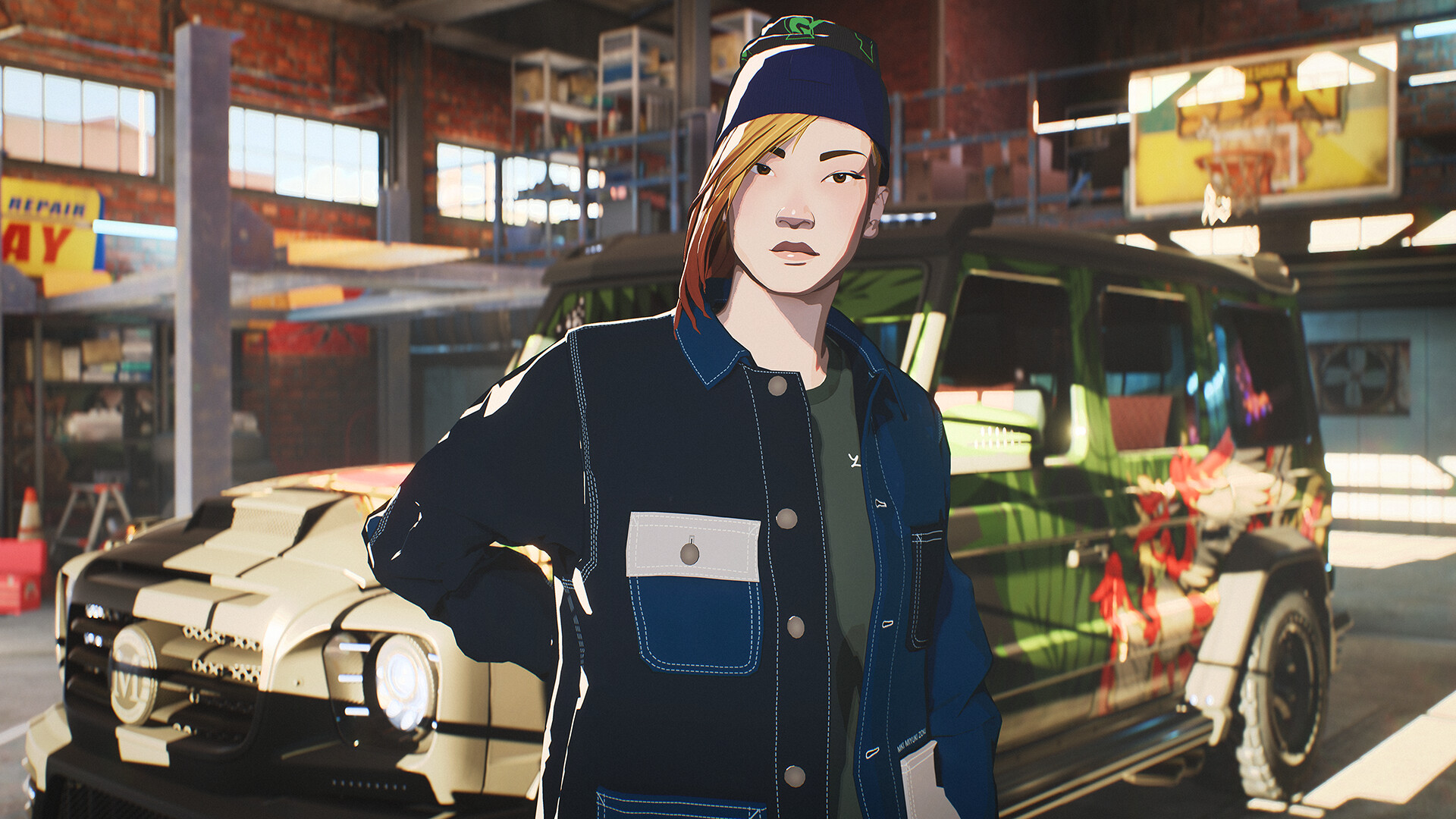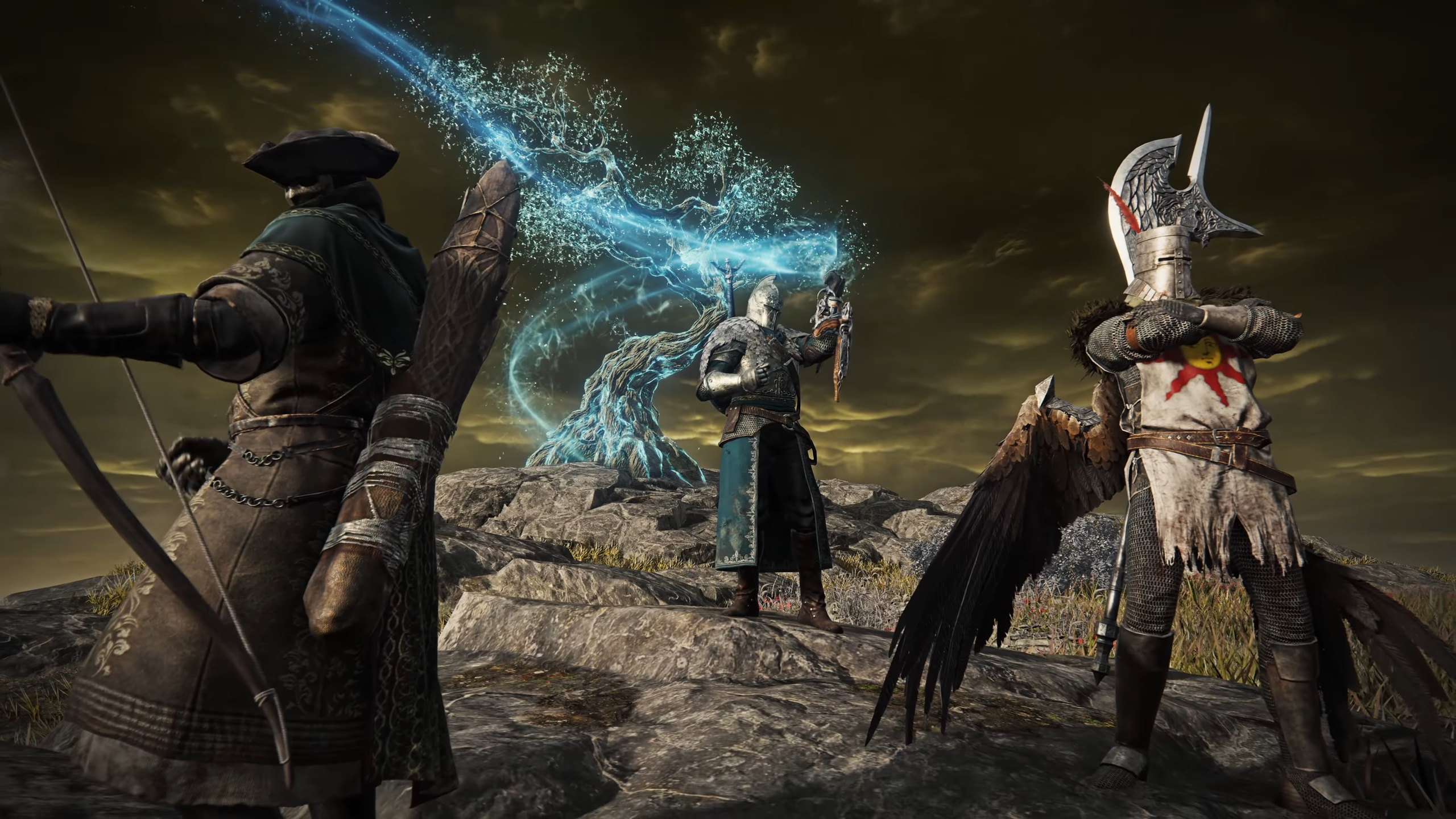
The venerable racer returns, in zoomer regalia.
What is it? The former king of arcade racers, returning with a bold new art style.
Expect to pay: £60/$70
Release date: Out now
Developer: Criterion Studios
Publisher: EA
Reviewed on: i7 9700K, RTX 2080 TI, 16GB RAM
Multiplayer? Yes
Link: Official site
There was a time when Need For Speed was as guaranteed a Christmas number one spot as a Simon Cowell reality show winner. Before there was Forza Horizon, all festivals and physics, there was this. A Fast and Furious analog with spoilers on its spoilers, every year exactly the same super-accessible arcade racer about underground tuner culture and corrupt cops. And we didn’t care that it was as formulaic as the aforementioned contest winner’s carefully selected Leonard Cohen cover. Until one day, finally, we did.
Need For Speed grew too big and popular to sustain itself. The sales were too good for EA to start tinkering with the formula, but the yearly releases oversaturated us with beamers in widebody kits and stories of betrayal told exclusively through the medium of checkpoint races. The world that Need For Speed Unbound emerges into, then, has changed. 2019’s NFS Heat was the franchise’s most convincing attempt at reinvention for years, but it couldn’t nudge Forza Horizon off its throne. Nobody can bridge the gap to Playground Games’ behemoth right now. Need For Speed Unbound needs to be something totally distinct to succeed.
(Image credit: EA)
Enter the new art style. This is an old franchise stepping out in its finest zoomer haircut and North Face puffer, hoping to find traction with the TikTok generation through a dramatic change of visual direction. It might seem like an incidental touch, but the anime-inspired smoke plumes and metaverse-ready avatars in Unbound are a real statement of intent for such an established series. When you drift round a corner and light up your tires a cartoon miasma appears, like somebody just let off their ultimate in a nearby Borderlands game. Painterly neon lines whizz around in circles beside your tires during a burnout. Your car literally sprouts a pair of graffiti wings when you catch a ramp and get some air. This, from a game that’s been telling the same po-faced plot about double-crossing street racers and psychopathic law enforcement officials for two decades.
For the first time, Need For Speed looks the way it drives. It doesn’t entirely wash its hands of reality, but instead exaggerates and augments it. These aren’t cars as they would behave if you actually flung them into a 90-degree turn at 120mph with nary a dab of the brakes, they’re cars as you want them to behave. Cartoonishly compliant, twitchy things that don’t make use of a sim racer’s skills any more than a 4X player’s.
Unbound’s tonal shift finds cohesion between its presentation and its gameplay, but the handling itself doesn’t sing to you like a siren’s call dragging you away from the almighty Forza. As in Heat, it’s hard enough to get your head around the fact that you essentially brake in this game by tapping the throttle, but it’s not the laissez-faire physics model that fails to inspire. Instead, Unbound often feels as though you’re cycling through micro-animations without much granular control. When you enter a drift, there’s no sense of your vehicle’s weight being thrown from one side to another, or the subsequent loss of traction on the loaded side as your tires reach their grip limit. It feels like the game has recognised inputs that initiate a drift.
(Image credit: EA)
Most of the time that’s enjoyable enough, though. It serves the style of racing Unbound offers: light on the corners and braking zones, focusing more on hitting top speed and holding it for as long as possible while snaking through busy urban tarmac. But when you’re in a tight race and a low-speed corner does appear, you want to be able to edge ahead due to your superior control of the vehicle. And Criterion’s handling model just doesn’t have that play, that granularity.
Not that there isn’t skill in going fast. The margins between decent and good driving are all about boost generation and management. A slightly confusing double-layered NOS boost system fills up as you do dangerous stuff—driving into oncoming traffic, near misses with traffic, drifts—and offers additional shots of boost for chaining these feats. If you game this mechanic hard, you can be boosting for half the race or more, and that makes a big difference to your times. It’s just a different discipline than many racers ask of you.
Zoom zoomer
But what you’re actually dying to hear about is the story, of course. A couple of kids who came up through the foster system start to make waves in Lakeshore’s street racing scene, thanks to Yaz’s knack for tunes and your driving. Grizzled mechanic and mentor Rydell keeps telling you two to play it smart, but Yaz won’t take direction. Before you can say “2005” there’s been skulduggery, a stolen starter car and a completed prologue which commits admirably to storytelling, albeit without having anything particularly novel to say.
(Image credit: EA)
But nobody came here for Proust. This is a game in which you’ll be driving cars, tuning cars, and then buying more cars to tune and drive. Any aspirations of revealing truisms about the human condition are rather hamstrung by those constraints. In other words: it’s trashy, pulpy, and mostly endearing for it. The dialogue does hit my ear awkwardly, but then I’m 36. For all I know, it might still be genuinely acceptable to describe something as “straight fire, yo”. And let’s be honest, even the great Forza isn’t renowned for its human and thought-provoking prose. Story here is a means to an end, and it’s enough to get you invested in the racing.
What’s likely to get you far more invested is the returning heat system. In the last NFS this introduced a bit of risk-reward via the day/night cycle: all the cash you earned during the day would be in jeopardy if you were caught up to no good at night and got busted. That same system’s intact here, but the day/night cycle has been expanded to a full working week of events, with showcase races each Saturday with massive buy-ins and vehicular prizes.
What it’s lost since the last game is the heat multiplier, which encouraged you to actively piss off the cops in order to raise your heat level before the end of the night. With a x5 heat multiplier on your rep, you’d bank huge XP and unlock new cars and parts that were previously out of reach. That’s gone now, and it feels like a step backwards. If anything, I wanted to see the next NFS game double-down on Heat’s excellent system and introduce something like Shadow of Mordor’s nemesis system to racing games. Particular cops you form vendettas with. Take them down for huge bonuses, get busted and lose a car. That type of thing.
(Image credit: EA)
What there is in lieu of that excellent idea is a rather more straightforward daily routine whereby you tick off as many events as possible before your rep level makes the game too annoying to play and you call it a night to reset your heat and bank your cash. The cops here are as dogged as ever, more than willing to risk their lives—and indeed those of absolutely anybody else in the vicinity—to apprehend a driver who flouts the speed limit. And once again, it’s not ever clear how the chase AI really works: is it better to hit max speed and hold it until they lose touch, or keep taking turns? I still don’t know. It’s been 20+ years.
A word of warning, by the way—if you are any older than precisely 20, NFS Unbound will make you feel about 90. It isn’t just the aforementioned zoomery dialogue. There’s also the soundtrack built on TikTok-ready Pixies covers and choruses of “Hey, you fuckin’ suck, I hate you”. The anime-inflected visuals and mission names like “Weeb in Need”. The character customisation screen filled with real branded clothing from the likes of Fila and Versace, filling the game with box fit tees and Vans. It’s a constant barrage of laser-focused youthfulness.
(Image credit: EA)
It might be straining to appeal to the young ‘uns, but NFS Unbound is still a loose and colourful racer, capable of whipping you up into its likeably nonsensical plot and getting you to obsess over your next car for its duration. Beyond that duration, there is an online multiplayer mode, but it’s already ghostly quiet despite the EA Access program offering 10-hour free trials. There’s nothing wrong with it—playlists of events from singleplayer, accessible in PvP races of up to eight, generous cash rewards—it’s just that there’s nobody playing. NFS has always struggled in this regard, and sadly Unbound isn’t the turning point.
Neither is it quite the return to glory and prominence that Need For Speed once enjoyed. It’s more feature-rich and mechanically complex than all of its predecessors—it’s just that its rivals are a lot better than they were circa ’07. The distinctive new look is a great success, and although the handling has some quirks it’s engrossing to figure out the boost system and max its potential. A braver Criterion and EA might have made more of the heat system, finding a new identity in that brilliant risk-reward mechanic. But even though it doesn’t go as far as it could have, Unbound’s a deeply worthy addition to a genre that lacks all-out arcade kicks.





